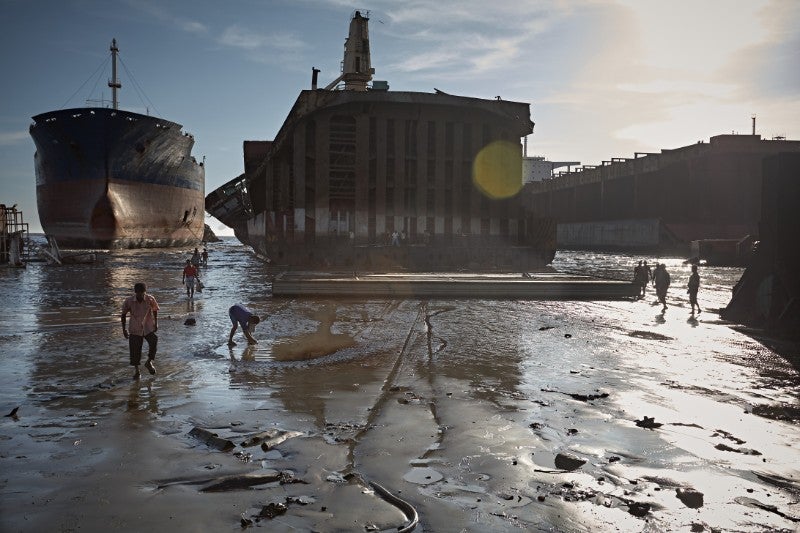The oil and gas industry, in an attempt to respond to continued bad press related to sustainable practise, has taken significant steps to improve safety conditions for many of its workers. However, the industry appears to be blind to the impact of its actions beyond their own companies. Workers engaged in peripheral splinter industries, which are highly polluting, are rarely acknowledged.
The BBC recently broke a story on shipbreaking in South Asia, exposing the devastating impact on the environment. Industrial ships are dissembled on the coastlines of South Asia, where the materials can be recycled and fashioned into new items.
How well do you really know your competitors?
Access the most comprehensive Company Profiles on the market, powered by GlobalData. Save hours of research. Gain competitive edge.

Thank you!
Your download email will arrive shortly
Not ready to buy yet? Download a free sample
We are confident about the unique quality of our Company Profiles. However, we want you to make the most beneficial decision for your business, so we offer a free sample that you can download by submitting the below form
By GlobalDataIn the process, toxic pollutants seep into the water, degrading the environment and poisoning the sea. This has had a knock-on effect on fishing, preventing workers from finding other sources of work. The industry has a stranglehold on local economies, as it slowly erases other avenues of revenue. This is far from a unique problem; similar cases can be seen in mining or oil hotspots.
For workers engaged in shipbreaking, there are more immediate problems. Health and safety regulation is close to non-existent and a Tata Institute survey found that over half of the shipyard workers had sustained injuries while working. Exposure to toxic chemicals can result in long-term health problems. This comes in stark contrast to the high-tech improvements in safety across the rest of the industry, such as upstream platforms and refineries.
There are regulations in Europe and the US that prevent companies from sending ships to be broken without first removing hazardous waste. This has had little impact. Instead another industry has sprung up, where some companies will act as middle-men between the ship owners and breakers, erasing the legal liability of the original owners.
The oil and gas industry must come to terms with its own environmental toll. They must take responsibility for the pollution caused by their assets, even once they have sold them on.
Technology has led to improvements in safety and efficiency across the value chain. These are all steps in the right direction. The lessons learnt in improving environmental and safety practises in the core business ought to be extended to workers at the end of the asset life-cycle. It would be unconscionable for a nuclear or coal-fired power plant operator to walk away from their assets before decommissioning, but that is exactly what the oil industry does.
These companies remain amongst the most profitable worldwide and are adopting new technologies from edge-computing to wearables to improve efficiency. The disregard for the impact on workers dealing with their waste surely should not continue when they are evidently capable of minimising these risks.
When companies consider their sustainability practices they must think beyond their immediate impact, and deeply consider the full extent of their influence. Awareness for their social and environmental impact in the splinter industries dealing with their waste is a necessity. After all, they wouldn’t exist without the core industries.











Related Company Profiles
BBC S.r.l.